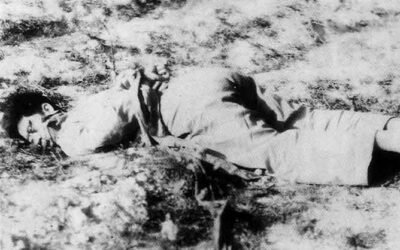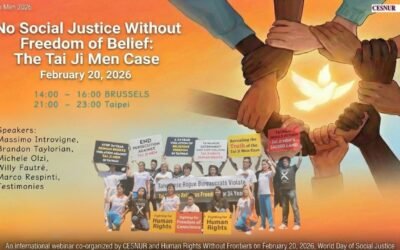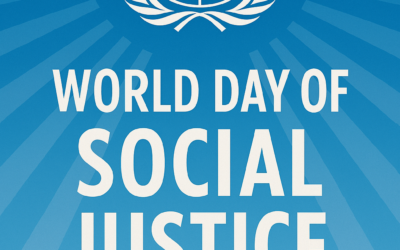Despite the solemn declarations, human rights are still systematically violated in many ways. The Tai Ji Men case is a blatant example of such violations.
by Hans Noot *
*A paper presented at the international webinar “The Tai Ji Men Case: Human Rights vs. Human Wrongs,” co-organized by CESNUR and Human Rights Without Frontiers on December 10, 2024, United Nations Human Rights Day.
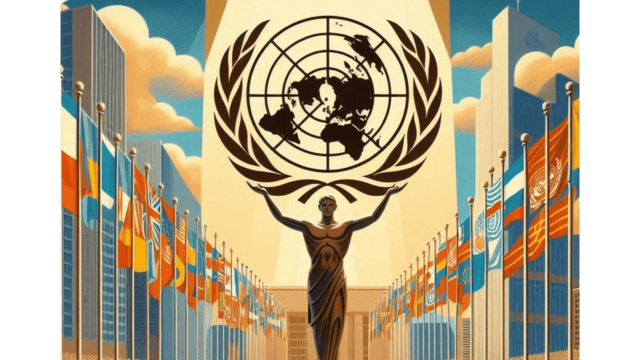
As we reflect on a cornerstone of our shared humanity—the Universal Declaration of Human Rights, adopted by the United Nations General Assembly on December 10, 1948—, we think of a pivotal document that emerged in the aftermath of one of the darkest periods in human history, a response to the atrocities of World War II. It represents a global commitment to uphold the dignity and worth of every human being. As we commemorate this Declaration, let us take a moment to explore the significance of human rights as well as the violations against these rights that persist in our world today.
Human rights are fundamental entitlements inherent to all individuals, regardless of nationality, ethnicity, gender, religion, or any other such status. They encompass the right to life and liberty, freedom of thought and expression, and the right to work and education, and more. They are the bedrock of democratic societies and the very essence of our commitment to justice and equality. Yet, as the Declaration reminds us, the promotion of respect for these rights and freedoms is not just a legal obligation; it is a moral imperative. These rights are not to be granted by the state, but protected, as they are inalienable. They celebrate the fact that all of us are equal as humans. They actually protect humanity itself.
Despite the comprehensive framework established by the Universal Declaration of Human Rights, we witness a multitude of human wrongs that underscore the urgent need for vigilance and action. Consider, for instance, the plight of refugees and migrants around the world. According to the United Nations High Commissioner for Refugees (UNHCR), over 117 million people were forcibly displaced by the end of 2023. Many of these individuals face dire conditions in overcrowded camps, lack access to basic health care, and endure the ever-present threat of violence. Their fundamental rights to safety, dignity, and protection often remain unacknowledged, illustrating a profound global injustice.
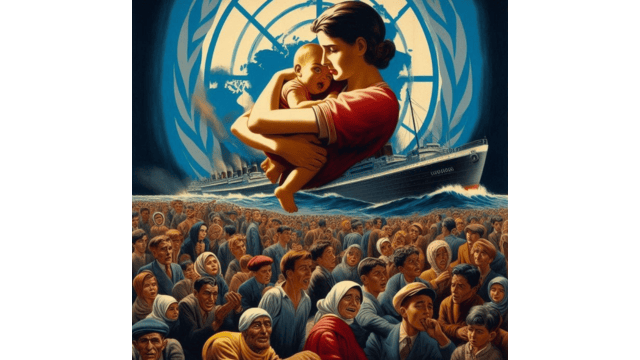
Another alarming example of human rights violations can be found in the systemic racial discrimination and violence that persists in many societies. Why is it that peoples of certain ethnic groups shout so loud for the wrongs done to themselves or their ancestors, that it victimizes society as a whole by maintaining the status quo of racial discrimination? We are not tackling the racial discrimination problem. And humanity is losing ground. Laws are insufficient. Racial discrimination remains discrimination if we exchange the victims with the persecutors. We, as people, need to change our attitude.
Furthermore, we must acknowledge the appalling situation of religious and political prisoners and dissenters in various countries. And the numbers are on the rise. In nations where freedom of expression is suppressed, dissenting voices are often silenced through intimidation, unlawful detention, and violence. Part of the refugee crisis in Europe is caused by religious intolerance in Pakistan and the Middle East, many of these refugees being Christians. And the current war conflicts are not helping one bit.
As we reflect on these wrongs, let us also remember the spirit of hope and resilience that defines our pursuit of justice. Each December 10, we honor the progress made and acknowledge the challenges that remain. It is an invitation to recommit ourselves to the principles of the Universal Declaration of Human Rights while galvanizing our efforts to stand in solidarity with those whose rights are grossly violated.
Today, we once again highlight a case that embodies the fight for human rights, one that is unfolding in Taiwan: the case of Tai Ji Men. This ongoing struggle, now spanning nearly three decades, highlights the intersection of cultural expression, spiritual beliefs, and human rights. Members of Tai Ji Men have been unjustly targeted with baseless criminal charges and sustained persecution by a rogue prosecutor, the National Taxation Bureau, and government authorities. Legally and morally, they have been proven innocent. What makes this even more disturbing is that the victims in this case are a group dedicated to promoting peace and justice. Such organizations, known for their integrity and noble ideals, should be celebrated and honored, not victimized.
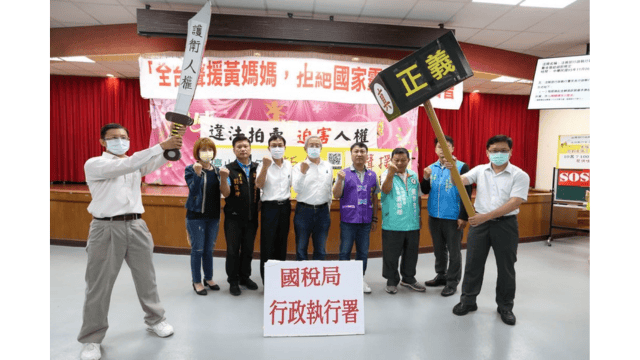
The Tai Ji Men case is emblematic of a broader issue regarding the rights to freedom of assembly and belief. In a democratic society, individuals must be free to peacefully assemble, practice their beliefs, and express themselves without fear of state retaliation. Despite efforts to resolve the situation through dialogue and legal channels, the injustices that infringe on their basic rights remain unresolved.
This ongoing struggle raises critical questions about the protection of human rights in Taiwan and elsewhere, and the responsibilities of the state in upholding these rights for all citizens, regardless of their beliefs. The objective of governments is to treat all citizens equal, not discriminate among them. It reminds us that the fight for justice is not just about the acknowledgment of past wrongs; it is about creating a future where the rights of all are respected and protected.
Let us, as a case in point, remember the victims of human rights violations, including the practitioners of Tai Ji Men who continue to seek acknowledgement and justice. Together, let us strive to create a world where every person is treated with dignity, respect, and equality. Akin to the work of the Tai Ji Men, granting human rights starts with an attitude in the heart, spreads to the family, to the social groups we belong to, to nations, the judiciary and national policy, into a world of peace. We have a long way to go. Let’s get to it.
Commemorating the signing of the Universal Declaration of Human Rights today, allows us to embody the spirit of change that it espouses. I applaud all who continue to advocate for those whose voices are silenced, whose bodies are tortured, and whose rights are taken from them, and support those that fight against oppression and injustice. Let’s work on holding leaders and judges accountable and demand that human rights be placed at the forefront of national and international policies, rather than economics, trade, and national security. Without human rights and the dignity humans as a species deserve, all the money in the world and even the existence of nations is completely worthless. Let’s avoid future world war atrocities that caused the creation of the Declaration of Human Rights in the first place.

Hans Noot is president of the Dutch Gerard Noodt Foundation for Freedom of Religion or Belief (GNF), named after the Dutch legal scholar and champion of religious liberty Gerard Noodt (1647–1725). He is a member of the International Advisory Board of the International Center for Law and Religion Studies (ICLRS) at Brigham Young University, Provo, Utah, and co-organizer of “Breed Overleg Godsdienstvrijheid” (Wider Consultation on Religious Freedom), an initiative with the Dutch Ministry of Foreign Affairs.

